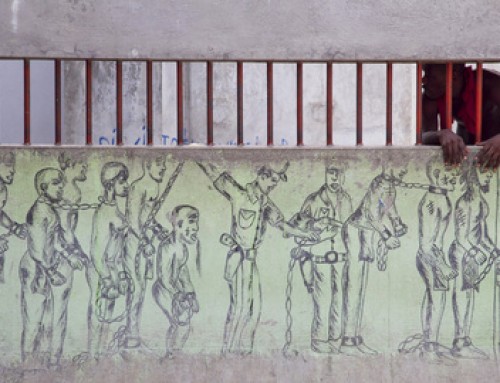Project Description
Switzerland passed a bill on the freezing and recovery of assets of illicit origin of foreign officials. The mechanism envisaged under the bill freezes and then returns assets of illegal origin deposited in Switzerland to their States of origin as quickly and transparently as possible while respecting the rule of law when mutual legal assistance fails. The bill is in line with the foreign policy goals of Switzerland and covers several aspects of the United Nations Convention against Corruption, making an important contribution to its implementation.
Description
A reform undertaken by the Government involves the submission to Parliament of a bill on the freezing and recovery of assets of illicit origin of foreign officials. This issue loomed larger in the wake of the Arab Spring in early 2011.
The mechanism envisaged under the bill would freeze and then return assets of illegal origin deposited in Switzerland to their States of origin as quickly and transparently as possible while respecting the rule of law, when mutual legal assistance fails. The bill would apply to exceptional circumstances, including the sudden overthrow of regimes whose leaders engaged in illicit enrichment; this provides new opportunities for legal cooperation between Switzerland and States of origin.
The bill is in line with the foreign policy goals of Switzerland, which for some years has been committed to strengthening the rule of law and which supports efforts to combat corruption and impunity. Since the bill covers several aspects of the United Nations Convention against Corruption, it would make an important contribution to its implementation.
Key results
The bill codifies the Government’s current practice with respect to the freezing and recovery of assets, which is directly based on the Constitution. Enactment of the bill by Parliament will better reflect the principles of the rule of law in two ways:
First, the rule of law in Switzerland would be strengthened because Government action in that regard would henceforth be regulated by a law enacted by Parliament. Switzerland’s asset-recovery policy would have greater legitimacy and would better comply with the requirements of the principle of legality, especially where predictability is concerned. The bill would also ensure judicial oversight over all stages of any procedure, including the freezing and seizure of assets of illicit origin.
Second, procedures to return assets of illicit origin to the States of origin would have stronger rule- of- law requirements. The bill expressly states that “the reinforcement of the rule of law in the State of origin” and the “contribution to combatting impunity” are principles that underpin such procedures. The assets recovered are expected to improve the living conditions of the people of the State of origin and not help to fuel new networks of corruption.
Key lessons learnt
In order to be successful, asset recovery policies require international cooperation among all the actors involved in addition to political will on the part of the international community. The leadership of ad hoc international forums, such as the Arab Forum on Asset Recovery launched under the auspices of the Group of 8 / Group of 7, is crucial in this regard.
Close cooperation in the form of mutual legal assistance between requesting and requested States is essential to conducting successful criminal investigations into assets of illicit origin.
A clear legal framework that sets forth the goals of asset recovery policy from freezing to recovery enhances the transparency and coherence of State efforts, especially where major financial centres are concerned.
Other relevant information
The bill on the freezing and recovery of assets of illicit origin of foreign officials was approved by the Government on 21 May 2014. It is currently being reviewed by Parliament, which could adopt it in 2016.
The bill and its explanatory report are available online on website of the Federal Department of Foreign Affairs






